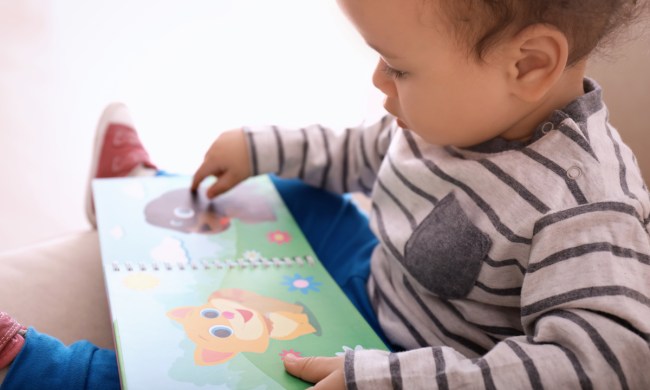Does your toddler catch the eye of strangers everywhere they go? Do family and friends ask why you don’t get them into modeling? While a life of fame and fortune may sound tempting, professional modeling is not child’s play. There are many benefits — as well as negatives — to consider when thinking about a toddler modeling career.
We will discuss some child modeling career basics, as well as what the job involves, to help you make the best decision for your child and your family.
Here are the pros
When your child seems to have that certain “something” that draws attention, it’s fair to think they may have a shot at a career in modeling. Toddler modeling can have huge potential for your little one. Here are a few of the biggest benefits of getting your toddler into the world of modeling:
Exciting career path: The world of modeling is exhilarating and creative. And what parent wouldn’t love to see their child on a billboard or TV? The possibility of fame is especially real when kids start at an early age.
As a career, modeling can also lead to other opportunities in the field of entertainment. Many child models turn to acting, singing, or dancing as a next step or to complement their modeling. It’s a career that opens doors for many children.

Quality parent-child time: When a kid goes into modeling, many parents choose to leave their jobs to accompany their child. While this is a job in and of itself, it also offers a once-in-a-lifetime opportunity for parents to spend time with their kiddos. Parents who manage their children’s entertainment careers watch them grow and share special moments that they wouldn’t have otherwise.
Unique life experience: Children who start to work at an early age enjoy unique life experiences. As they meet others in the industry and interact with clients, child models mature faster than their peers. This can help them develop a sense of independence and confidence as they gain experience in the business.
Possibility of travel: A career in entertainment often takes models to interesting new places. This can create opportunities for your child to travel the world and interact with different cultures. As the parent, you would join them on these trips and visit places together.
Earning potential: Successful models are well paid. Kids who enter the world of modeling at an early age have a lifetime of lucrative income that can ensure their future. In addition, kids who know their earning potential can grow to be successful adults in their field of choice.
Here are the cons
As the saying goes, “not all that shines is gold” — and toddler modeling is no exception. While your child is still a toddler, keep in mind that they grow quickly and it’s only a matter of time before the cons of modeling rear their ugly heads. These are some of the negative consequences:
Time commitment: For toddler modeling to turn into a career, you need to take this profession seriously. It requires a major time commitment and adjustments to your family life. Toddler models need to be available for castings at a moment’s notice. Last-minute shoots are a common occurrence and you may find yourself driving long distances. This is exhausting for both kids and parents.
As your child grows up, their modeling career could interfere with their school schedule. Home schooling is a real need for many young models who also can’t take up sports or socialize with many kids their own age. It takes sacrifice, commitment, and discipline for kids to grow in the field of modeling.
Body image issues: Psychological damage is a reality for many child models, actors, and entertainers. The expectations to look a certain way put a lot of pressure on kids who haven’t yet developed a sense of self. And, as they continue to grow in this environment, it gets tougher when they enter the teenage years.
Scams and child abuse: Most parents have read articles about illegitimate modeling agencies that turn out to be scams. A reputable agency will never ask for money up front or ask you to spend thousands on videos and photos. Snapshots and home video of your toddler should be enough when starting out.
Remember that the safety and well-being of your child always come first. Never leave your child unattended while at a casting or a shoot. Protect your little one by doing your due diligence on reps, clients, and others in the industry.
Understanding rejection: Many times, producers have a clear vision of the model they want to cast. This means your child won’t always have the desired look, which will lead to many rejections.
To avoid emotional damage, parents in the industry seek help from experts. It’s equally important for parents to understand that rejection is not personal. Of course, this is easier said than done, and most children struggle with this side of modeling.
Realistic expectations: The reality is that most models don’t make it in such a cut-throat industry. The competition is ruthless, and there are more models out there than there are jobs. If you decide that modeling is right for your toddler, set your own expectations and keep them in mind as you go to castings.
As you make this decision for your child, remember that nothing is forever. Your toddler can start modeling at a young age as a way to build a nest egg — with an exit plan in mind. You can also hold off on toddler modeling but stay open to the possibility when your child gets older. No matter what you do, the most important thing is to make sure your little one is happy and enjoying their childhood.


